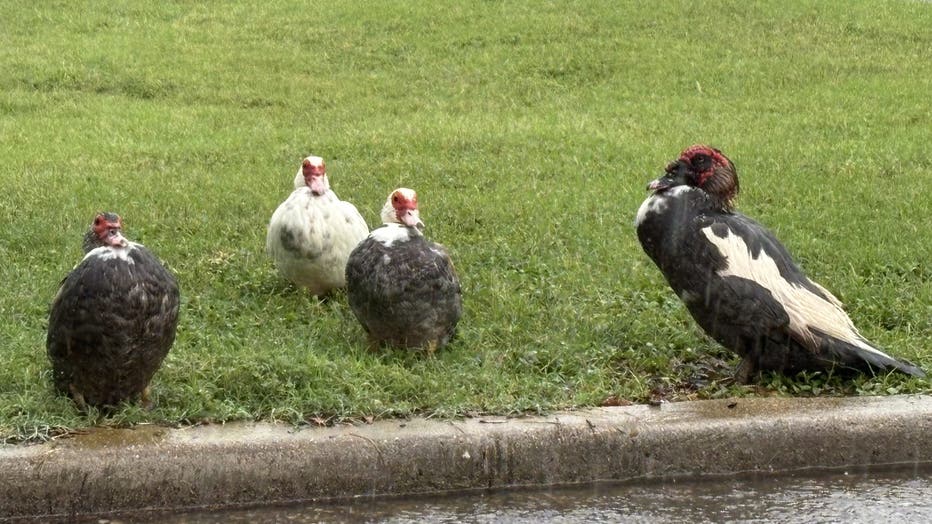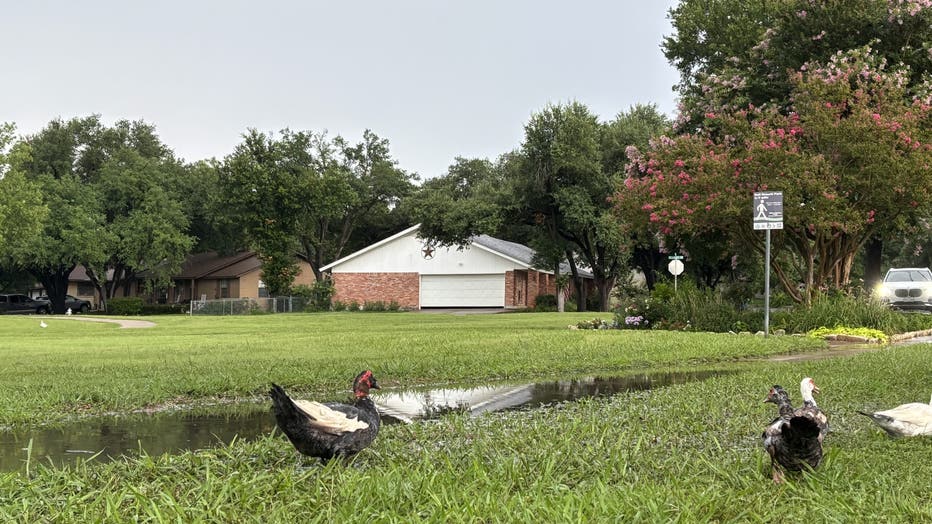City of Taylor dealing with invasive duck problem

Invasive ducks in Taylor
The city of Taylor loves its ducks so much that they?ve named streets after them and turned the bird into the school district?s and the city?s mascot, but right now, they actually have too many of a certain kind of duck.
TAYLOR, Texas - The city of Taylor loves its ducks so much that they’ve named streets after them and turned the bird into the school district’s and the city’s mascot, but right now, they actually have too many of a certain kind of duck.
Invasive ducks in Taylor
The backstory:
"They have these red types of pearl-like growths on their face, they’re very pronounced," said Daniel Seguin, Taylor's communication director.
Seguin is talking about the Muscovy duck, a once house-pet, now wild, that has waddled its way all over town.
"A lot of people think the birds are really ugly, a small minority think the birds are really cute because of it," said Seguin.
However you see them, the city says the birds are causing some fowl play.
"I watched them, they stopped feeding the ducks and walked away, and those ducks immediately turned and looked at us and started coming towards my son and approaching him like ‘what are you going to give us’ and started getting a little close," said Seguin. "Really made us uncomfortable."
The same birds also made headlines in Florida recently after biting people and even sending one to the hospital.
"I sat on my porch around 7 to 7:30 p.m. at this time of the year to catch the sunset, you know, some sun, and I had my eyes closed. All of a sudden I felt a jab on my hand, and it was bleeding," said James Sepulveda, a Florida resident bit by a Muscovy duck.

Why you should care:
These invasive birds are bad news to Taylor's native ones, too, essentially making them sitting ducks to much more serious issues.
"They also can dilute the native populations by breeding with them and producing other half-breed ducks, so to speak, that aren’t able to reproduce themselves, and so it can really cause harm to the native duck population," said Seguin.
One might call the situation, well, crappy.
"This pavilion that we’re standing in is typically covered in waste from these ducks," said Seguin.
"We are cleaning feces off of our driveways, sidewalks, porches, and railings and on vehicles every day," said Jackie Krueger, who spoke to the city council last week about the Muscovy ducks. "Last year's drought restrictions had us using a broom and a bucket of water multiple times a day."
She said she's been asking the city council for help with the Muscovy ducks for three years now.
"I believe the only way for people to abide by people not feeding them at their homes is for the council to pass an ordinance along with a fine for those who continue to feed them at their homes," said Krueger.

What's next:
Last week, the Taylor City Council decided to move forward with a partnership with Texas Parks and Wildlife.
"We would like to pursue mitigation through reducing the population that are born every year. There’s some strategies we can use with the eggs where we essentially make the eggs where they aren’t going to hatch," said Seguin.
Until then, Seguin seconds the signs across city parks reading "do not feed the ducks," even if it ruffles some feathers.
"The biggest thing the public can do to help is to stop feeding the birds," said Seguin.
The goal is to start a mitigation plan in the next few months. Council members will have to vote on it, along with any funding it may take to mitigate them.
The Source: Information from interviews conducted by FOX 7 Austin's Lauren Rangel

